COVID-19 Response
Learning from COVID-19: A Human Venture Response
Today we are in the midst of a cluster of learning storms, driven by a multi-leveled cluster of converging crises. Learning isn’t necessarily beneficial; inventions, beliefs, and behaviours that are harmful and destructive are learned too. The crises-driven learning storms we’re buffeted by today amplify and concentrate learning processes that would ordinarily be spread out over decades or even lifetimes, making them easier to observe. If the challenges we face are unprecedented, so is the opportunity to learn about how learning works at different levels, what it takes to do it well, and why we often do it badly.

When we think about learning we typically focus on learning at a personal level. We don’t usually think about how viruses or our immune systems learn, or how organizations, communities, societies and civilizations learn, much less how all this learning is adaptively linked. That’s what Human Learning Ecology sets out to do.
Every fall, our personal immune systems get updated as children return to school, pooling new crops of pathogens that they bring back home and share with the family. Think of the yearly bouts of colds and flu as immune system up-grades. Our immune systems are complex adaptive learning systems, but they can’t learn if they aren’t exposed to disease-causing agents, which leads to an important principle: health isn’t the absence of disease, it’s the ability to effectively deal with the causes of disease. Since the causes of disease are always adapting and changing, it’s a never-ending process.
Vaccines are designed to be safe but look like pathogens to our immune systems. They trigger an immune response without triggering the disease. By using vaccines to build up herd immunity, we have eradicated some terrible diseases like smallpox, have nearly eradicated polio, and greatly reduced the incidence of serious childhood diseases like measles.
Developing safe, effective vaccines is critical to protecting populations from largescale outbreaks of infectious disease. Typically, it takes many years of research and testing to develop a vaccine, but in the current crisis there is a world-wide, collaborative effort to speed up the process.
“A pandemic is a global disease outbreak. An influenza or flu pandemic is the outbreak of an influenza strain that is sufficiently novel in its genetic make-up that there is virtually no immunity in the human population. If the virus is capable of causing serious disease in humans and is also easily transmissible, an influenza pandemic ensues.”
Unlike our immune systems that operate at the cellular level, doing the research and testing required to understand how immunity works must be consciously initiated and directed. The ability to do this requires innovative, adaptive learning capabilities that are not entirely dependent on existing routines.
These kind of adaptive learning capabilities are not common. Most education and training focuses on routine challenges and objectives. We succeed by learning and applying standard operating procedures. Almost everything about it is predictable. More advanced education and training develops a repertoire of standardized procedures, an ability to diagnose an unrecognized problem, and select and apply the appropriate procedure. A predominance of these types of learning experiences can lead people to expect learning to be more predictable than it actually is with real world challenges.
Note that the definition of a pandemic highlights the novelty of the pathogen, it follows that there is virtually no immunity to it in the human population. This can lead to high levels of uncertainty. Our immune systems don’t know what to do, and neither do we, at least in early stages.
To someone used to the efficiencies of routine/predictable learning, adaptive learning can look like fumbling or incompetence that easily leads to frustration and anger. Stop to think about that though. Uncertainty is primarily a mental state, not a situation. Uncertainty is the restraining effect of encountering something that one doesn’t understand or something for which one is not prepared. Uncertainty is not all or nothing, there are levels of uncertainty with different restraining effects depending on the capacity and resources of the people involved.
A first step in managing uncertainty is working out why it is occurring. It could be a result of relative ignorance, where the problem and the means to deal with it are unknown to the individual or group, but not to others. The way forward involves on-the-go learning from others, and seeking help, information or examples from others in the same kind of situation.
Uncertainty could also be the result of general ignorance where as far as one can determine, the problem and potential solutions are not known by anyone. The way forward is to investigate the problem and pioneer the development of an appropriate means for mitigating or solving it. It is common for people who don’t understand the nature of adaptive learning to accept general ineffectiveness (i.e., “the problem can’t be solved, we just have to live with it”) or take ill-considered steps to appear to be doing something (e.g. “try injecting bleach”).
Some situations are inherently unpredictable due to their complex and/or emergent character. The way forward is to: 1) closely monitor emergent situations, 2) analyse constituent patterns of events, 3) anticipate the possible range of conditions, 4) develop a flexible plan and prepare for all contingencies, and 5) develop efficient, real time adaptive controls.
Some situations are unpredictable because they involve unreliable allies and/or intelligent adversaries. The way forward is to: 1) analyse opposition’s capabilities, habits, intentions, strengths and weaknesses, 2) assess your own and your allies’ strengths and weaknesses, 3) closely monitor emergent situations, 4) prepare for all contingencies and 5) secure against catastrophic developments.
There are usually several overlapping causes of uncertainty and ways forward, but there is another characteristic of learning and pattern searching that is very helpful to understand. There’s a difference between high level or universal patterns and the specific details of an endeavor. While the details might be unknown, the high-level patterns might be well understood. Among military strategists this is expressed something like this: All wars are different, but the nature of war is always the same. Understanding the high-level principles that characterize all war provides a structured starting point for investigating or planning the details of a specific war.
Humanity has had long experience with mass outbreaks of disease, and by studying the patterns involved we have developed a wide body of doctrine that outlines the structure and general nature of epidemics and pandemics, as well as the details that make each occurrence unique.
When you’re uncertain and don’t know what to do, you know what to do: you learn, but it helps if you have a place to start.
-Ken Low, Founder The Human Venture Institute. May 2020
Explore Further
An Opportunity for Civilizational Change
We have an opportunity to reshape civilization. But what could/ should that look like? How do we avoid building in the same flaws? And how do we develop the capacity to discern between promising and destructive lines of development? Read More
Part 1: Systems in Converging Crisis
What kind of a cluster f&#% are we in? And will the systems that we have come to depend on rebound into utopia or dystopia It’s very hard to ponder these questions without examining two frames: The smaller, systems-level frame, and the larger and encompassing philosophies that humans use to design, monitor, and govern these systems. Read More
Part 2: People in Converging Crises
The collective ‘we’, especially people of white privilege, failed for too long to take anticipatory action to ensure all human lives are treated with dignity and respect. It’s disappointing, but not surprising, that it took the circulation of vivid footage of another Black man losing his life at the hands of a police officer to expose the injustices in a manner that a wider range of people could emotionally align with. Read More
Complexity Shock, Finding Patterns, and Adapting
Large-scale, sustained and rapidly spreading global “shocks” like the pandemic trigger a cascade of reactions by individuals and groups at all levels as they begin to assess and respond to new threats and opportunities. Human Learning Ecology refers to this process as adaptive positioning. Read More
Recommended Reading
- Epidemics and Society, From the Black Death to the Present, Frank Snowden
- Deadliest Enemy: Our War Against Killer Germs, Michael T. Osterholm, Mark Olshaker
- The Atlas of Disease: Mapping Deadly Epidemics and Contagion from the Plague to the Zika Virus, Sandra Hempel
- A Paradise Built in Hell: The Extraordinary Communities that Arise from Disaster, Rebecca Solnit
- The Code Breaker: Jennifer Doudna, Gene Editing and the Future of the Human Race, Walter Isaacson
